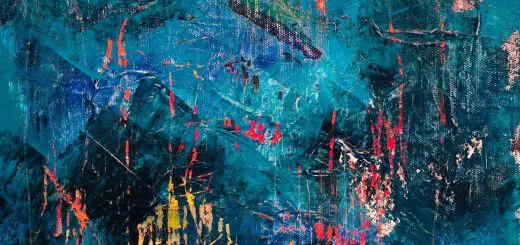Aditi: Mother of the Gods

Looking for more amazing products? Check out our online store and explore our collection here! Happy shopping!
Before diving in, please note: This post is for informational purposes only. If you’d like to know more about how we approach topics, feel free to check out our friendly Disclaimer Page.
Hey there, amazing readers! 
We’re committed to delivering quality posts, and your support (even just sticking around despite the ads) means everything to us. So, bear with us, and thanks for helping us keep the good vibes rolling. Now, on to the fun stuff!
TRANSLATE BUTTON AT THE END OF THE ARTICLE
A Quick Overview
Aditi, known as the Mother of the Gods in Hindu mythology, holds a significant place in ancient Vedic texts and scriptures.
She is revered as the primordial goddess and the embodiment of infinity and boundlessness.
Aditi plays a crucial role in the creation of the universe and is associated with fertility, protection, and motherhood.
Her influence can be seen in various aspects of Hindu beliefs, rituals, and iconography.
This article delves into the origins, role, attributes, family relationships, worship, and cultural legacy of Aditi, shedding light on her importance in both ancient and modern Hindu traditions.
The Origin of Aditi
Aditi’s name is derived from the Sanskrit word "adi," meaning primordial or original.
In Hindu mythology, she is described as the cosmic mother who predates the gods and goddesses.
Aditi is often portrayed as the personification of the infinite and the eternal, representing the boundless expanse of the universe.
She is revered as the source of all creation and the mother of all beings, both divine and mortal.
Aditi in Hindu Mythology
In Hindu mythology, Aditi is often depicted as a benevolent and nurturing deity.
She is considered the mother of the Adityas, a group of solar deities who are associated with light, energy, and cosmic order.
Aditi is also revered as the protector of the righteous and the defender of truth and justice.
Her name is invoked in hymns and prayers to seek blessings for fertility, abundance, and prosperity.
Aditi’s Role in Creation
Aditi is believed to have played a vital role in the creation of the universe.
She is often described as the primal force from which all existence emerges.
Aditi is associated with the concept of "Prakriti," the unmanifested, primordial energy that gives rise to the material world.
As the mother of the gods, Aditi is credited with birthing the divine beings who govern various aspects of the cosmos.
Aditi as the Mother of the Gods
Aditi is revered as the mother of the Adityas, a group of celestial deities who embody different aspects of nature and cosmic order.
The Adityas are often depicted as radiant beings associated with the sun, light, and energy.
Aditi’s role as the mother of these divine beings symbolizes her status as the progenitor of all celestial forces and cosmic principles.
Aditi’s Attributes and Symbols
Aditi is commonly depicted as a radiant goddess with a nurturing and protective demeanor.
She is often portrayed with multiple arms, symbolizing her ability to nurture and sustain all creation.
Aditi is associated with fertility, abundance, and motherhood, and is often depicted holding symbols of nourishment and sustenance.
Her serene and benevolent presence signifies her role as the ultimate source of life and vitality.
Aditi’s Family and Relationships
Aditi is the wife of the sage Kashyapa, who is regarded as one of the seven ancient sages in Hindu mythology.
Together, Aditi and Kashyapa are the parents of the Adityas, as well as other prominent deities such as the Maruts (storm deities) and the Daityas (demonic beings).
Aditi’s maternal love and protective nature are evident in her relationships with her divine offspring, whom she cares for and nurtures with unwavering devotion.
Aditi’s Importance in Vedic Texts
Aditi is prominently featured in the Rigveda, one of the oldest and most revered texts in Hinduism.
She is praised in hymns and prayers as the universal mother and the source of all existence.
Aditi’s role as the primordial goddess highlights her significance in Vedic cosmology and mythology.
Her presence in sacred texts underscores her status as a foundational deity in Hindu belief systems.
Aditi in Art and Iconography
In Hindu art and iconography, Aditi is often depicted as a radiant goddess adorned with divine ornaments and symbols.
She is portrayed with a serene expression and a compassionate demeanor, embodying the qualities of nurture and protection.
Aditi’s images can be found in temples, shrines, and sacred spaces dedicated to the worship of the divine mother and the cosmic forces she represents.
Aditi’s Influence on Hindu Beliefs
Aditi’s presence in Hindu mythology has had a profound influence on the beliefs and practices of followers of the faith.
She is revered as the universal mother who embodies fertility, abundance, and protection.
Devotees invoke Aditi’s blessings for blessings of prosperity, well-being, and spiritual growth.
Her role as the mother of the gods underscores the interconnectedness of all existence and the divine source from which all life arises.
Aditi’s Legacy in Modern Culture
Aditi’s legacy continues to resonate in modern Hindu culture and society.
Her depiction as the primordial goddess and the mother of the gods serves as a source of inspiration for artists, poets, and thinkers.
Aditi’s nurturing and protective qualities are celebrated in festivals, rituals, and ceremonies that honor motherhood, fertility, and the cyclical nature of creation.
Her presence in contemporary Hindu practices reaffirms her enduring relevance and significance in the lives of believers.
Aditi’s Worship and Festivals
Aditi is worshipped by devotees seeking blessings for fertility, protection, and prosperity.
Special prayers and rituals are dedicated to her, especially by those seeking maternal blessings and support.
Festivals such as Aditi Jayanti are celebrated in honor of the goddess, where devotees offer prayers, hymns, and offerings to seek her grace and benevolence.
Aditi’s worship is a way for believers to connect with the divine mother and seek her guidance and protection in their lives.
Aditi’s Relevance in Contemporary Society
In contemporary society, Aditi’s symbolism as the mother of the gods and the embodiment of fertility and protection continues to hold significance for many Hindus.
Her nurturing and protective qualities resonate with individuals seeking comfort, support, and guidance in their daily lives.
Aditi’s presence in Hindu practices and beliefs reinforces the importance of honoring the divine feminine and recognizing the interconnectedness of all beings in the cosmic web of existence.
Conclusion
Aditi, the Mother of the Gods in Hindu mythology, embodies the qualities of infinity, boundlessness, and fertility.
Revered as the primordial goddess and the progenitor of the celestial deities known as the Adityas, Aditi holds a central place in Vedic texts, rituals, and iconography.
Her nurturing and protective nature, as well as her role in creation, underscore her significance in Hindu beliefs and practices.
Aditi’s legacy continues to inspire devotion and reverence in modern Hindu culture, affirming her timeless relevance as the cosmic mother and divine source of all existence.

The Enlightenment Journey is a remarkable collection of writings authored by a distinguished group of experts in the fields of spirituality, new age, and esoteric knowledge.
This anthology features a diverse assembly of well-experienced authors who bring their profound insights and credible perspectives to the forefront.
Each contributor possesses a wealth of knowledge and wisdom, making them authorities in their respective domains.
Together, they offer readers a transformative journey into the realms of spiritual growth, self-discovery, and esoteric enlightenment.
The Enlightenment Journey is a testament to the collective expertise of these luminaries, providing readers with a rich tapestry of ideas and information to illuminate their spiritual path.
Our Diverse Expertise
While our primary focus is on spirituality and esotericism, we are equally passionate about exploring a wide range of other topics and niches 

To ensure we provide the most accurate and valuable insights, we collaborate with trusted experts in their respective domains 
Our blog originally focused on spirituality and metaphysics, but we’ve since expanded to cover a wide range of niches. Don’t worry—we continue to publish a lot of articles on spirituality! Frequently visit our blog to explore our diverse content and stay tuned for more insightful reads.
Hey there, amazing reader! 
Check out our store here and take a peek at some of our featured products below! Thanks for being awesome!











